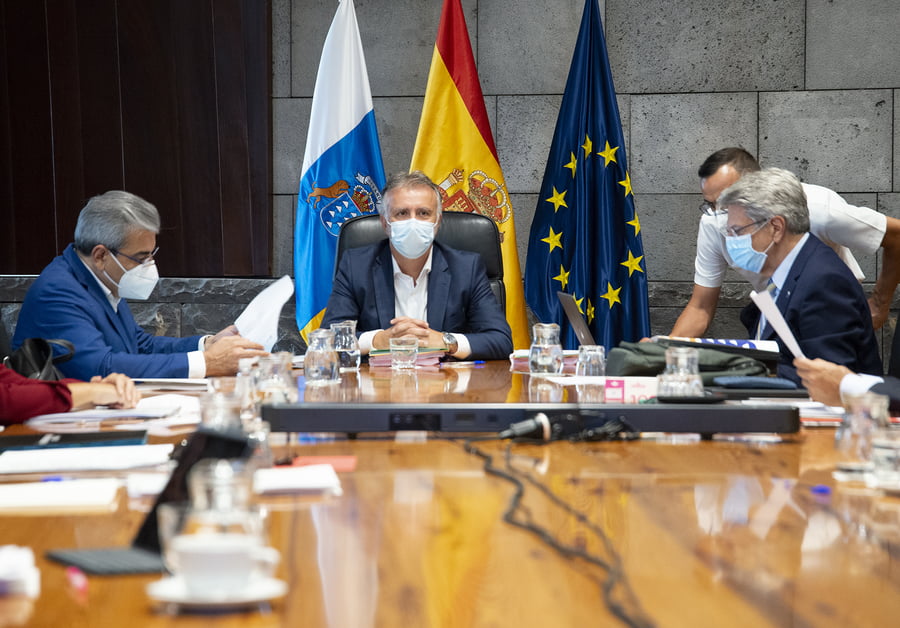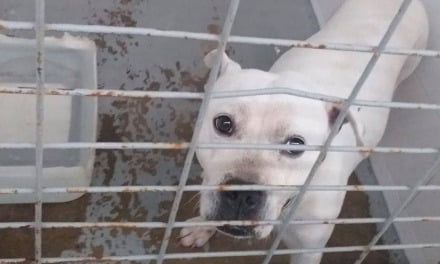There are also to be sanctions for those who fail to ensure that their clients or event attendees follow the letter of the law, in a concerted effort to try to bring infection rates down and gain control once again. The hope is that some return to normality can be affected over the coming weeks, as children return to school, and that tourists and the hospitality industry can return, at least in part, in time for the main Winter Season.
The Canary Islands Governing Council have this Friday approved a decree law establishing a framework for fines when people refuse to comply with COVID-19 prevention and containment measures in the Autonomous Community of the Canary Islands, which will enter into force the day after its publication in the BOC Official Gazette of the Canary Islands. It has also been agreed to subsequently send the decree to the Parliament of the Canary Islands for their validation.
The new law expressly describes “very serious infractions” leading to fines of between €60,001 and €600,000, which include breaching capacity limits established by current orders or measures related to COVID-19, as well as when the effective capacity of a premises exceeds 100% of that allowed and if effective capacity is found to be greater than 150 people.
The decree aims to establish duties of caution and protection, surveillance and control measures, as well as a sanctioning regime, for issuing fines, meant to guarantee compliance with the measures and obligations contained in the provisions or in the public health acts adopted by the state or regional authority as a result of COVID-19.
The rules deem Very Serious infractions to include:
– The organisation and promotion of events, or any type of act in public or private spaces, in which group celebration restrictions are breached, or have not been authorized in cases where it is required, or where prevention measures established for these are not observed, and when more than 200 people participate.
– Any Serious Offense, will be deemed as Very Serious if the person responsible for it has been fined/sanctioned for the same type of offense within the year prior.
– Carrying out other actions or omissions, that violate the obligations or restrictions established by the State or the Canary Islands Autonomous Community and measures to deal with the health crisis caused by COVID-19, if they produce a risk or very serious damage to the health of the population.
Serious Offenses
Serious offenses (with fines of €3,001 to €60,000) include:
– Group consumption of alcohol or narcotics on public roads in a group of more than 10 people.
– Failure to comply with quarantine isolation prescribed by health professionals whose job it is to detect, monitor and control the spread of the disease, in the case of patients diagnosed with COVID-19.
– Any organisation and promotion of events or any type of act, in public or private spaces, in which the group celebration restrictions are breached, or not authorized in cases where it is required, or prevention measures established for these are seriously breached, and when more than 20 people and up to 200 participate.
– Or the breach of capacity limits established by the current orders or measures related to COVID-19, when the effective capacity in the premises exceeds the allowed capacity by 50% and that effective capacity is greater than 20 people, provided that the conduct does not constitute a very serious offense.
– Likewise, non-compliance with the obligation to put dance floors out of action are deemed serious offenses; non-compliance with the preparation and execution of the contingency plan or the protocol against COVID-19 when obliged to do so in accordance with the orders or measures issued by the competent authority: non-compliance with prohibitions regarding the opening of a premises, adopted in COVID-19 prevention measures, and keeping an employee working, in any type of establishments, homes, centres and social services residences, when it is known that they may have symptoms or have contracted the disease, or have tested positive for COVID-19.
This category of serious offenses also includes:
– Preventing any inspection activity or verification of the facts.
– Any reluctance to provide data, or obstruction to providing data, as well as providing inaccurate information.
– Refusal to collaborate with the health authorities, agents of any corresponding authority, Local Police, the General Corps of the Canary Island Police, State Security Forces and Bodies that are performing their duties, as well such as the performance of other actions or omissions that violate the obligations or restrictions established by the State or Canary Islands Autonomous Community, aimed at dealing with the health crisis caused by COVID-19, if that produces a risk or serious damage to the health of the population.
Minor offenses
Finally, minor offenses (which carry fines of 100 euros up to 3,000 euros) include:
– Failure to comply with the obligation to use a mask or improper usage of a mask.
– Repeated breach of the obligation to use a mask or inappropriate usage.
– Failure to comply with the smoking restrictions, use of tobacco inhalation devices, water pipes, hookahs, shishas, or similar, imposed by the health authority for the prevention of COVID-19, as well as group consumption of alcohol or drugs on a public road in groups numbering less than 10 people.
It should be noted that, in the specific case of non-compliance with the obligation to wear masks or misuse, a fine of €100 will apply.
Similar fines may include:
– The refusal to carry out diagnostic tests for the detection of COVID-19 when prescribed by health professionals whose job it is to detect, monitor and control the disease.
– Failure to comply with the COVID-19 prevention measures or orders limiting freedom of movement.
– Or breaching quarantine confinement or self isolation, when it has been recommended or prescribed by health professionals whose job it is to detect, monitor and control the disease, in the case of having had close contacts with patients diagnosed with COVID-19, or with symptoms compatible with the disease or any other reason for which self isolation has been recommended or prescribed.
In addition, minor offenses can also include:
– Failure to comply with the capacity limits of a premises open to the public, established by the current orders or measures related to Covid-19, when the conduct does not constitute a serious or very serious offense.
– Participation in meetings, events or any type of act, in public or private spaces, in which current group celebration restrictions are breached or prevention measures established are seriously breached.
– Or the organization and promotion of events or any type of act, in public or private spaces, in which restrictions are breached, or it has not been authorised in cases where it is required, or where prevention measures established for these are breached, or when up to 20 people participate.
Into this category of minor offenses can be included:
– Within establishments, premises and spaces, both organisers and promoters of activities and events of any nature, in fact or in law, where there are breaches of the duty to compel users, clients and attendees, failing to comply with the obligations, to use a mask, maintain interpersonal safety distance, employ hand hygiene, respect conditions of separation, or who do not observe official closing times established by the health authority for the containment or prevention of COVID-19.
– And breaches in establishments, premises and spaces, as well as by the organizers and promoters, in fact or in law, of activities and events of any nature, who fail to fulfil information signage duties on capacity and information on hygiene and social distancing COVID-19 prevention measures, established by the health authority.
Lastly, minor offenses may include:
– Failure to comply with the obligation to inform residents, visitors or users about schedules, minimum interpersonal distance and the mandatory use of masks.
– Failure to comply with a regime of visits, departures and arrivals established in the contingency plans at social services centres, and any other breach of the obligations and restrictions established by the State or by the Autonomous Community of the Canary Islands to face the health crisis caused by COVID-19 and that is not classified as a minor, serious or very serious offense by this decree law.
Enforcement and accessory sanctions
Minor offenses will be prescribed on record for one year, those classified as serious, for two years; and those classified as very serious, for three years.
Cases of serious infractions, taking into account the seriousness of the facts, risk and circumstances, may also lead to closure of the premises or establishment where an infraction has occurred or prohibition of carrying out the activity, for a maximum period of three months.
Similarly, in cases of very serious infringements, the closure of a premises or establishment, where the infringement has occurred, or the prohibition to carry out the activity may be ordered as an accessory sanction, after hearing evidence from the interested party, for a maximum period of three months. .















